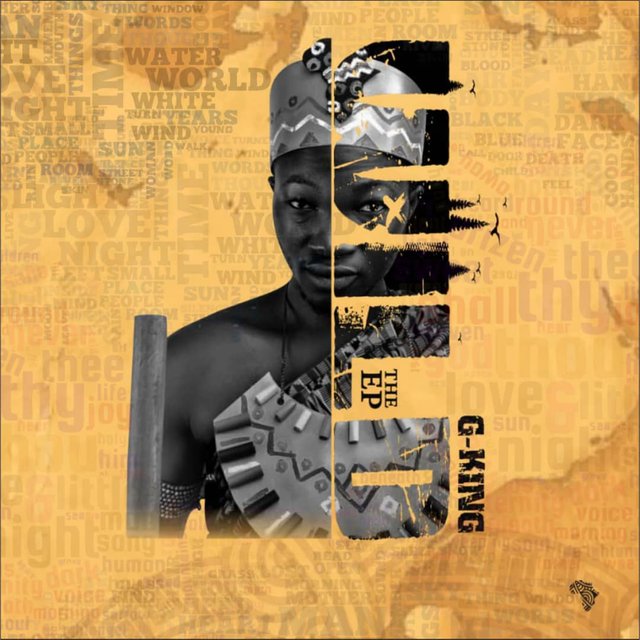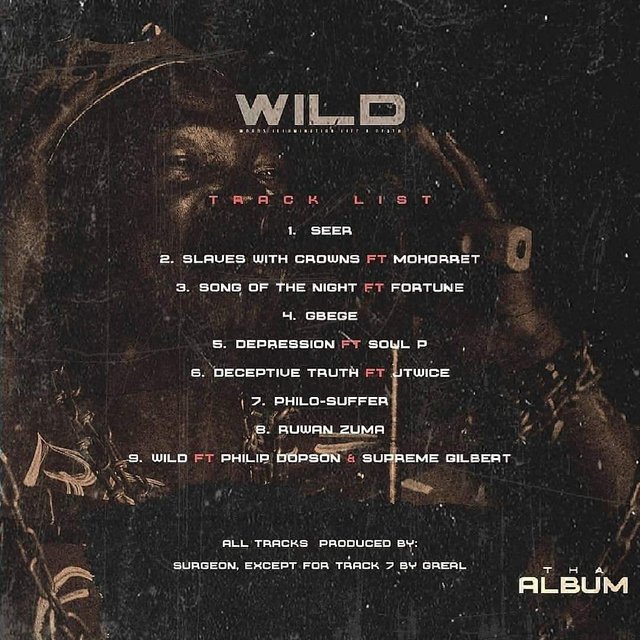
Being a lover of spoken word poetry, I’ve spent hours listening to great spoken word pieces by renowned poets all over the world. By the way, I became charmed by spoken word poetry after a depressing breakup from a relationship some years back. Since then, I became-for lack of a suitable term- emotionally attached to spoken word poetry. But then, I’ve only listened to several single performances of different or even the same poets on different stages and watched their body gestures which in my opinion then, made the piece even more appreciable. I mean, that was the only form of spoken word poetry presentation I was exposed to at the time and audio versions or an entire audio album weren’t so popular then. I didn’t even know that a poet could have an album just as we have music albums. In my naïve thoughts and weak taste for page poetry, I believed the ‘worst’ (spoken word poetry being my coolest form of poetry) a poet could have is a collection of his poems in a book which I might be lazy to read. But then, I listened to an audio version of a piece alone without visuals and got my mind changed.
I began to see the brilliance in conveying emotions and stirring up same with just the poet’s voice. So I could listen to a poem and feel every single thing the poem carries and even more. I believed that the feeling of listening to an entire album will be on a different level. And it really is. The album “WILD” by Gideon Yakubu with the stage name G-King is the first audio spoken word poetry album I have completely listened to (somebody shout “hallelujah”). I got to feel the poet and his poem through every track and got familiar with his personality, style and message all at the same time. It was like a volcanic rush into my mind. So, let’s take a wild ride through my thoughts on this exciting piece of art.
On April 20th, G-King released WILD. It was meant to be an EP but was considered an album since it contained nine tracks. Preceding the album was so much anticipation and hype. I joined the anticipation camp really hoping deep down that my expectations would not be cut short. Then I had the privilege of listening to some two tracks before the actual release date and I was like…I don’t have words for that expression. Just my brows going up and my neck drawn backwards and for a few seconds, then I uttered “okay”. Each track had a story and each line had its own separate story. At the end of it all, I understood why the album was named “WILD”. However, I later got to know that WILD was an acronym that stood for Words Illumination Life and Death. I’m yet to completely wrap my mind around this acronym but then, WILD was represented in its literal meaning in most of the piece, so I’ll just stick to the basic understanding of the word ‘wild’ (P.S. these poets can be crazy).


So, there are nine tracks; starting from my favorite to the last being my least understood- Gbege, Philo Suffer, Deceptive Truth, Ruwan Zuma, Slaves with Crowns, Depression, Wild Heart, Seer and lastly, Song of the Night. Each piece is graced with a heart-warming sound track or background song that suites the theme of the piece. The writer’s attention to detail is also glaring in the album. Basically, you could tell the social background of this poet. He came from the streets, believe me. Gbege and Philo Suffer being my favorite captures his personality pretty well. His choice of words and using vernacular as spoken on the streets was simply brilliant. You would also notice the generous use of puns, metaphors and allusions that could create vivid images of the storyline in your mind. This, many writers say is a trait of a good poet. You would also notice the diction of the poet- very unique. In fact, it is the first thing you would notice. It gives him away as a northern bred poet.
Each piece carries strong messages found in almost every line. My favorite, Gbege, spoke of the pathetic state of the country and the result of our inactions. Philo Suffer tells the tale of a young woman damaged by her sexual escapades that started from a tender age. I believe this piece calls us to refrain from judging people whom we see as the symbols of sexual atrocities and social vices in our society. I remember my own piece “Lizzy” (that’s story for another day though).
Depression was another that carried a depth that most of us find difficult to voice out in times of depression and loneliness. In the end, it draws our attention to the Light. Deceptive Truth, just as the title implies, is a complete paradox. It challenges existing ideologies held with so much societal reverence that had led many astray rather than uplifting them.
Song of the Night was quite unique especially with the singer’s lyrics and strings bringing more illumination to the poem. It spoke of the struggles we face and the groaning of the soul as we go through difficulties but like depression, it offered hope and pointed to Christ who became the poet’s “song of the night”.
I like to think Ruwan Zuma is a love poem, but something tells me that the loved is not a woman even though the poet uses feminine features while describing the beauty of his lover. Since the title translates as 'honey', it could be that the poem is a representation of how the poet feels about his lover- sweet. You would want to imagine the kind of poems he would write for his wedding vows.
Slaves with Crowns will first hit you with the memories of Black Slavery histories and their movie adaptation and then open your mind to the reality of the fact that slavery doesn’t have to have your hands and legs chained but once your mind is, you are a slave and the worst state of this slavery is the ignorance of it which the slave boast in with pride.
Wild Heart still remains a mystery in my mind. As I listened, I imagined the poet as a wild creature in a forest. I like to think the forest represented this terrestrial ball on which we exist and the wildness of it as every creature tries to survive. And to survive, one might have to be wild. And Seer is basically about the poet’s observation of his environment, the trends, the ill-happenings and all reality could be. But then the piece could also be interpreted with the proverb that says “nothing is hidden under the sun”. While the Seer himself could be God who will have men recompense for their evil doing.
WILD is the first from G.King. I anticipate another wilder than this.
WILD is now available for streaming on
Soundcloud https://m.soundcloud.com/gideon-king-1
Audiomack
https://audiomack.com/artist/gking-13
And will soon be available on all digital platforms.